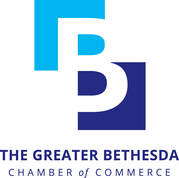|
Reduced Access To Debt Financing Is Coming—How To Prepare Your Small Business
Apr 4, 2023,12:09pm EDT By Neil Hare Recent bank collapses mean that banks are starting to change their risk models for lending. If you’re like most business owners, you’re looking at the Silicon Valley Bank (SVB) and Signature Bank collapses and wondering what it means for your access to capital—but perhaps not in the way in which you originally thought. The question of whether your money will be safe at your bank has, for the most part, been answered affirmatively by the government. But the question of where you’re going to get an influx of capital this year if you need it, is not looking positive. To date, the explanation for the SVB collapse is that it had gobs of cash deposits from its startup clients during the recent boon, and like most banks, it invested it in the safest bet you can make: U.S. Treasuries. The problem was SVB bought longer-term Treasuries, meaning they couldn’t be converted back into cash quickly and easily. Ben Lozano, CEO and cofounder of Bay Area fintech startup SMBX and an expert on the bond market, explains, “SVB had a classic liquidity crisis. They issued short-term loans to their customers and bought long-term Treasury bonds at low interest rates. When the rates went up quickly, those long-term bonds lost value and so, they were basically insolvent. Depositors lost confidence and started withdrawing their funds.” It remains to be determined why the tech community, which is not risk averse, decided a run on the bank was necessary. While it largely seems like there isn’t an endemic banking crisis like in 2008 and everyone’s deposits are safe, banks are already starting to change their risk models for lending. This means your ability to borrow money for a line of credit or to invest in your business is going to be much tougher for the foreseeable future. Banks will be offering less money at higher interest rates and with more demands from your balance sheet. How to plan for the cash crunch This crisis may force you to seek alternative sources of funding, so you must plan accordingly. As we learned during Covid, make sure your books are in order. Remember that the vast majority of American businesses did not get much or any of that government bailout money. The Small Business Administration (SBA) issued roughly 5.2 million Paycheck Protection Program (PPP) loans out of a total of 30 million U.S. small businesses—and that doesn’t include solopreneurs, independent contractors, and gig workers. The main reason that businesses were shut out of PPP was simply that they didn’t have their tax returns, P&Ls, balance sheets, and other documentation ready to go at a moment’s notice. Getting these items prepared does cost time and money, but not as much as you may think. Accounting software, like QuickBooks, is available for as little as $15 per month. Also, some accounting software comes with invoicing, credit card, and other forms of electronic payment acceptance, and even marketing tools. Credit card companies, in addition to providing access to capital, offer many other services and helpful information on managing your business. Check out Mastercard’s Master Your Card and Digital Doors programs, for example. Your local community will definitely have resources for finding affordable service providers. For example, in Washington, DC, the Coalition for Nonprofit Housing and Economic Development (CNHED) provides technical assistance, including free accounting and legal advice to small businesses, among other things, to ready businesses to apply for loans. Steve Glaude, president and CEO of CNHED says, "There are many organizations on the national and local levels that provide free or low cost technical assistance for small businesses, including Community Development Financial Institutions (CDFIs), which provide a range of financial products and services to underserved communities. I’d advise businesses to find a CDFI in their community and start a conversation.” Other resources include SCORE and its free mentorship program, Small Business Development Centers (SBDCs), chambers of commerce, and municipal economic development offices. Grants and bank alternatives for debt funding So, where else should you look for funds outside of your bank? For starters, it’s always worth checking if there is government grant money available. Covid relief funds, like the Small Business Opportunity Fund and Community Navigator Pilot Program (CNPP) authorized by President Biden in the American Rescue Plan Act, are still working their way through the system to state and local governments. The best place to find information on these federal grants is the SBA. If you can’t find grant opportunities, you can always apply for an SBA loan. While the process is often long and arduous, the interest rates are very competitive and the risk models are lower than conventional banks. There are also organizations, like Hello Alice, the Accion Opportunity Fund, and even private companies like FedEx, which offer small business grants and vast libraries of “how-to” content. These grants are often small amounts and are typically issued in a lottery format, so they are not overly reliable, but worth looking at. Finally, crowdfunding is now becoming a much more viable option for debt funding. SMBX, an online marketplace that connects small business owners with everyday investors, for example, can help businesses borrow from $25,000 to $5 million dollars in debt at competitive interest rates with terms ranging from one to 10 years. An added bonus to crowdfunding is that promoting your business as a strong investment is also a unique opportunity to market your products and services. Plus, your investors are more likely to support your business over the longer term and protect their investment. “We’ve seen a tremendous uptick in issuer listings the first quarter of 2023, even before the banking problems began,” says Lozano. “I think businesses are starting to realize that they can access the capital they need, engage their customers and keep wealth in their communities in a way they can’t do with traditional banks.” Unfortunately, with inflation still problematic enough to cause ongoing Fed rate hikes, the corresponding banking crisis, the war in Ukraine, and other issues disrupting supply chains, a recession or down market this year is looking likely. It is critical to learn the lessons of Covid and get your affairs in order. If there's a storm coming, the time to fix the roof is when the sun is shining. About the Author Neil Hare is an attorney and President of GVC Strategies, where he specializes in small business policy, advocacy, and communications campaigns; follow him on Twitter @nehare and on LinkedIn. See more of Neil’s articles and full bio on AllBusiness.com.
1 Comment
GBCC is honored to celebrate Women’s History Month by spotlighting GBCC Women's Networking Group members who are creating history in our community today through their careers, interests, and influential perspectives.
Today, we would like to introduce Sandra Hart, The Growth Coach. GBCC is honored to celebrate Women’s History Month by spotlighting GBCC Women's Networking Group members who are creating history in our community today through their careers, interests, and influential perspectives.
Today, we would like to introduce Brittany LaFleur, Founder of Your Best Self Therapy. GBCC is honored to celebrate Women’s History Month by spotlighting GBCC Women's Networking Group members who are creating history in our community today through their careers, interests, and influential perspectives.
Today, we would like to introduce Maria Bardos is Director of Sales at the brand new AC Hotel Bethesda Downtown GBCC is honored to celebrate Women’s History Month by spotlighting GBCC Women's Networking Group members who are creating history in our community today through their careers, interests, and influential perspectives. Today, we would like to introduce Eliza Freeman, Marketing and Sales Manager for Servpro of Wheaton/Kensington/Clarksburg/Damascus/Poolesville. www.servprowheatonkensington.com GBCC is honored to celebrate Women’s History Month by spotlighting GBCC Women's Networking Group members who are creating history in our community today through their careers, interests, and influential perspectives.
Today, we would like to introduce Tatiana M. Gillespie Co- Founder & President of SŌL & MAISON Real Estate. GBCC is honored to celebrate Women’s History Month by spotlighting GBCC Women's Networking Group members who are creating history in our community today through their careers, interests, and influential perspectives. Today, we would like to introduce Amy Loew, Certified Optavia Coach and Founder of Love My Health, LLC GBCC is honored to celebrate Women’s History Month by spotlighting GBCC Women's Networking Group members who are creating history in our community today through their careers, interests, and influential perspectives.
Today, we would like to introduce Kathie Durbin, Director of Montgomery County’s Department of Alcohol Beverage Services. GBCC is honored to celebrate Women’s History Month by spotlighting GBCC Women's Networking Group members who are creating history in our community today through their careers, interests, and influential perspectives.
Today, we would like to introduce Erin Pickrell, Director at Griswold Home Care of Bethesda-Chevy Chase. GBCC is honored to celebrate Women’s History Month by spotlighting GBCC Women's Networking Group members who are creating history in our community today through their careers, interests, and influential perspectives.
Today, we would like to introduce Nora Carrol, who has been a business owner, marketer, visual artist and adult educator. Her newest venture is NoraCarrol.com, providing writing/editing, career communications and creative coaching. |
Welcome!Our Chamber Blog is designed to provide you information about The Chamber, our members, advocacy and legislative updates, and important business tools. Archives
June 2024
Categories
All
|
|









 RSS Feed
RSS Feed

